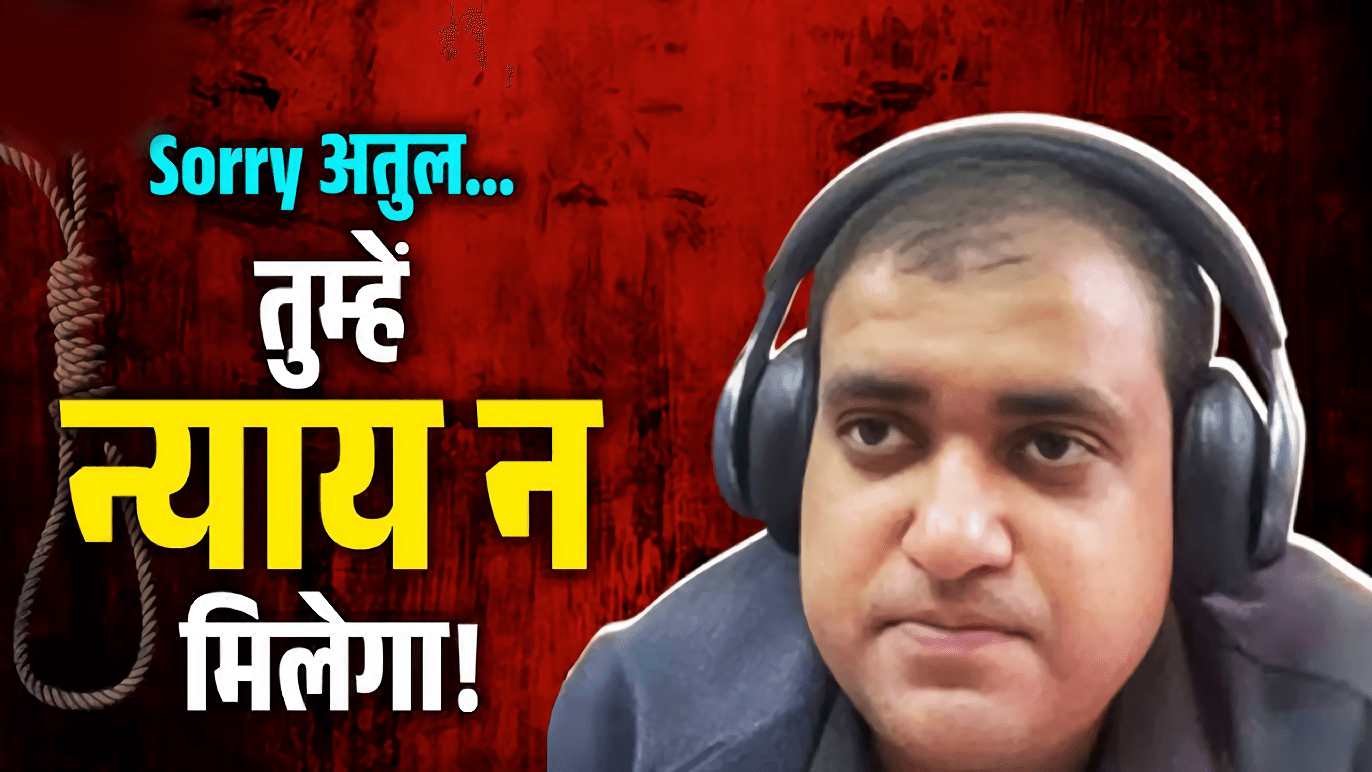The recent release of individuals accused in the tragic suicide case of Atul Subhash on a mere Rs 500 bail bond has ignited significant controversy and public outcry.
This incident raises serious questions about the judicial process, the adequacy of legal safeguards, and the broader societal issues surrounding mental health and marital disputes.
The Tragic Incident
On December 9, 2024, Atul Subhash, a 34-year-old man from Uttar Pradesh living in Bengaluru, was found dead in his home in Manjunath Layout, Marathahalli.
Atul, who was employed in a private firm, died, leaving many people in shock, especially when there was a 24-page suicide note. Subhash chronicled in this note his struggles and the alleged mistreatment by his wife and her relatives that made him commit suicide.
Before his death, Subhash ensured that his narrative reached several people. He sent the note through email to a list of recipients and shared it in a WhatsApp group associated with an NGO that he was actively involved in.
On a placard he wrote the words in his house: “Justice is due.” All Subhash did from organizing his belongings to making the note to be public was show that he really wanted to tell what happened in the story, and there was so much despair involved.
Investigations revealed that Subhash had been suffering from marital discord for a long time. His wife was said to have even filed a case against him in Uttar Pradesh, which has made his mental condition worst. He felt cornered by the legal challenges against him, and this led him to take such a drastic decision.
Legal Proceedings and Bail Controversy
After Atul’s death, the people accused of assisting him to commit suicide were arrested, but their release on a bail bond of Rs 500 immediately became an issue for national debate and discussion. Critics from every sector – legal experts, activists, and the common man—questioned whether the alleged leniency towards these accused was sufficient.
The crux of the controversy lies in the disparity between the severity of the allegations and the nominal bail amount.
Abetment to suicide is a serious offense under Indian law, and the public’s dissatisfaction stems from the perception that the judicial response undermines the gravity of the charges.
Comparisons with Other Cases
This case’s bail decision stands in stark contrast to the treatment of accused individuals in other high-profile cases. For example, in the SI paper leak case of Rajasthan, the Rajasthan High Court granted bail only after the accused furnished a personal bond of Rs 1 lakh each, along with two surety bonds of Rs 50,000 each.
Likewise, in Kolkata, two men accused of abetting a colleague’s suicide were granted bail under stringent conditions, including regular reporting to the investigating officer. These examples point out some contradiction in judicial practices and highlight the question of standards practiced with regard to Subhash’s case.
Mental Disability and Marital Disturbances
Atul Subhash’s death has brought to the forefront the critical point of intersection between mental health problems and marital disputes. The detailed suicide note shows how intense his emotional pain was and how he felt alone at the end.
While Atul’s story is particular in its details, it resonates with a common challenge that many people experience who are going through similar things.
This brings into the mind the usual psychological pressures a marriage disputes causes especially when there are issues of abuse and harassment at stake. This is precisely the case for Atul who wrote to the readers by recording his feelings in note form and joining a help group.
NGOs such as the Save Indian Family Foundation, with which Subhash was associated, hope to help those who are wronged by the misapplication of legal provisions, such as Section 498A of the Indian Penal Code.
These organizations are, however, underresourced and reach only a few. Atul’s case is a tragic reminder of the urgent need to fill these gaps and make available robust mental health and legal resources.
The Public Response
There has been a vocal reaction from the public to this decision on bail. Within minutes of posting, many different social media platforms received torrents of rage, complete with trending hashtags seeking justice for Atul across Twitter, other social networks, and their ilk.
Activists and citizens called for changes to bail policies, reasoning that they need to proportionally correspond with the extent of the offense charged. Most importantly, people have called for accountability of the judicial decision-making process, ensuring that the decisions it arrives at are fair and just.
Besides legal reform, the tragedy has also seen a need for mental health awareness. The legal institution is supposed to deal with the case and deliver justice, but society needs to ensure such tragedies do not happen again by creating an environment that values and upholds individuals.
Judicial and Policy Reform
The release of the accused on such a nominal bail bond raises questions about the larger issues within the Indian judicial system.
The bail amounts and conditions are mostly decided at the discretion of the judge, which sometimes leads to inconsistency. Critics say that the Indian judicial system needs standardized guidelines in order to be fair and proportionate with the bail decisions.
This case also emphasizes how treatment of mental health would become a critical component of legal and social policy.
Most marital disputes, especially involving claims of harassment or abuse, have severe psychological consequences. The issues need a comprehensive approach that includes reforms in the legal system and in mental health resources available, as well as a system of community support networks.
Suicidal death of Atul Subhash and subsequent controversy that erupted in bail granted to accused has exposed deep flaws of judicial and social systems established to protect human beings.
Though the guilt of perpetrators will be determined by judicial pronouncements, this incident alone has raised grave questions concerning the adequacy of Indian legal framework and its approach toward mental health.
This tragedy will serve as an appeal to reforms that not only emphasize justice but also sensibility.
The issues involved in this case are better addressed with fair bail, improved mental health systems and a society of compassion rather than seeing the kind of incidents recur.
Atul Subhash’s story, therefore, should not fizzle into obscurity and be just a stark reminder of what remains to be done.





2 thoughts on “Atul Subhash Suicide Accused Released on Rs 500 Bail Bond Raises Controversy”